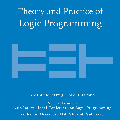Modern applications combine information from a great variety of sources. Oftentimes, some of these sources, like Machine-Learning systems, are not strictly binary but associated with some degree of (lack of) confidence in the observation. We propose MV-Datalog and MV-Datalog+- as extensions of Datalog and Datalog+-, respectively, to the fuzzy semantics of infinite-valued Lukasiewicz logic L as languages for effectively reasoning in scenarios where such uncertain observations occur. We show that the semantics of MV-Datalog exhibits similar model-theoretic properties as Datalog. In particular, we show that (fuzzy) entailment can be decided via minimal fuzzy models. We show that when they exist, such minimal fuzzy models are unique (when they exist) and can be characterised in terms of a linear optimisation problem over the output of a fixed-point procedure. On the basis of this characterisation, we propose similar many-valued semantics for rules with existential quantification in the head, extending Datalog+-. This paper is under consideration for acceptance in TPLP.
翻译:现代应用将来自多种来源的信息结合起来。 通常, 其中一些来源, 如机器学习系统, 严格来说不是二进制的, 而是与某种程度的(缺乏)对观测信心相关联。 我们提议MV- Datalog 和 MV- Datalog+- 分别作为数据log 和 Datalog+- 的延伸, 以无限价值Lukasiewicz逻辑L 的模糊语义为语言, 以有效推理发生这种不确定的观察的情景。 我们表明, MV- Datalog 的语义与Datalog 的模型理论性质相似, 与Datalog 相类似。 我们特别表明, 可以通过最小的模糊模型( 模糊) 和 MV- Datalog+- 来决定( ) 。 我们表明, 这些最小的模糊模型( 当它们存在时) 是独一无二的, 可以用线性优化问题来描述固定点程序的产出。 基于这种特性, 我们提议类似许多有价值的规则的语义, 以维持性量化的方式在头部, 扩大数据仪+- 。 我们正在考虑在TPLPLP 中接受 。
相关内容
- Today (iOS and OS X): widgets for the Today view of Notification Center
- Share (iOS and OS X): post content to web services or share content with others
- Actions (iOS and OS X): app extensions to view or manipulate inside another app
- Photo Editing (iOS): edit a photo or video in Apple's Photos app with extensions from a third-party apps
- Finder Sync (OS X): remote file storage in the Finder with support for Finder content annotation
- Storage Provider (iOS): an interface between files inside an app and other apps on a user's device
- Custom Keyboard (iOS): system-wide alternative keyboards
Source: iOS 8 Extensions: Apple’s Plan for a Powerful App Ecosystem





